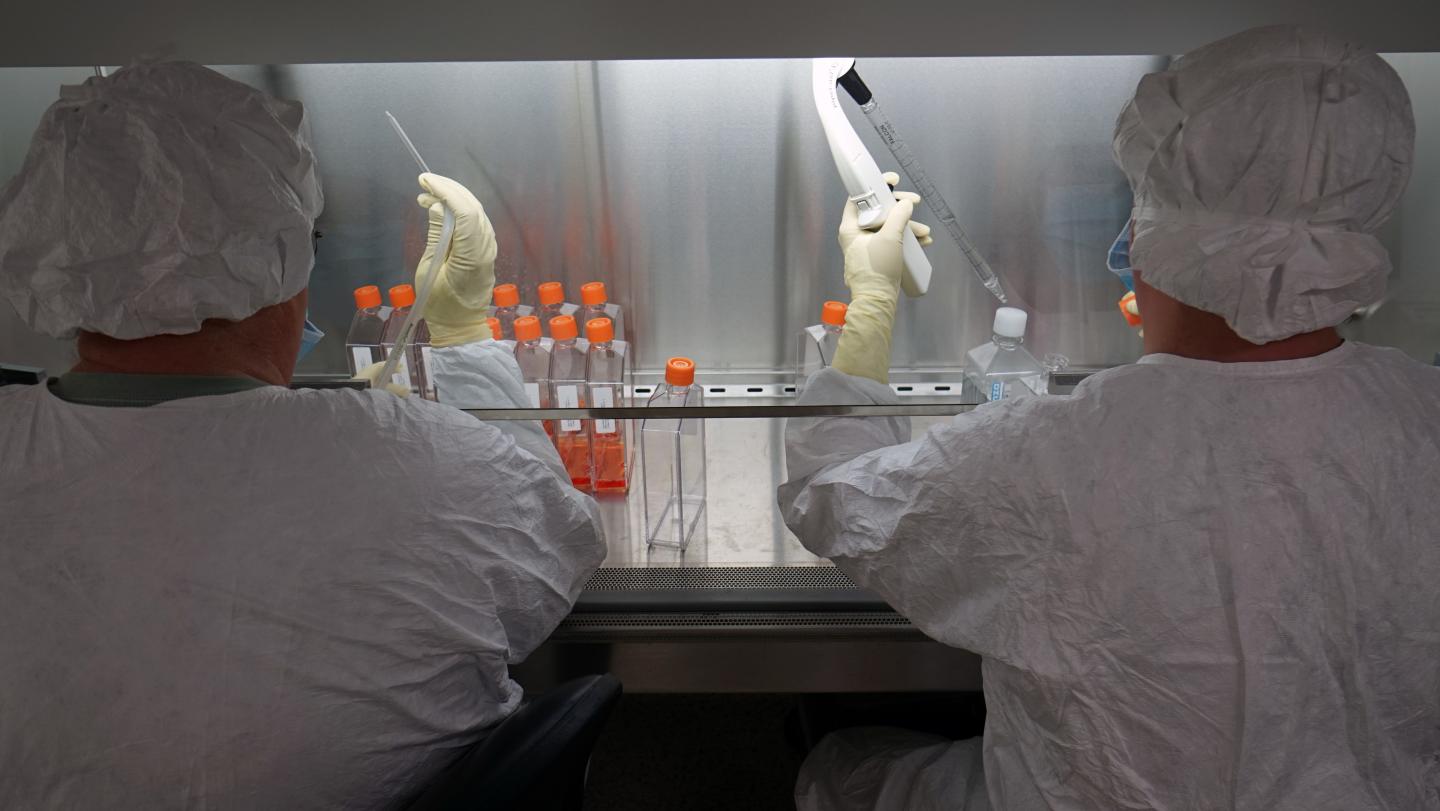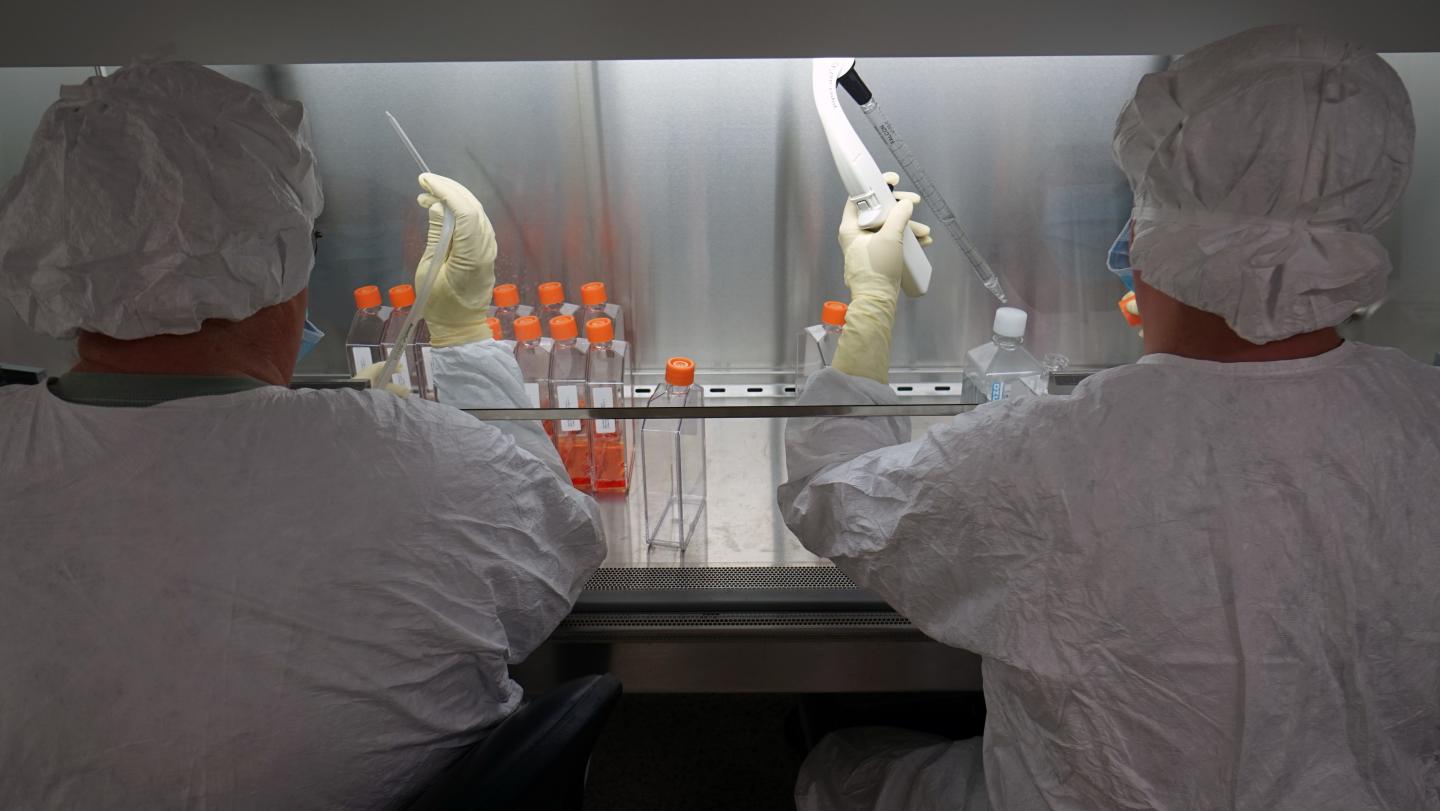
SILVER SPRING, Md. – The Walter Reed Army Institute of Research (WRAIR), in collaboration with the Beth Israel Deaconess Medical Center and Harvard Medical School, has completed a second round of preclinical studies on a promising Zika vaccine candidate and found it to completely protect rhesus monkeys from experimental infection with Zika virus.
WRAIR researchers and partners recently reported the protective efficacy of a ZIKV purified inactivated virus (ZPIV) vaccine in mice. Findings from the new preclinical study confirm and extend these prior studies by demonstrating robust protection in nonhuman primates. Nonhuman primates are believed to develop immune responses to vaccination most closely corresponding to humans. The study will be published online by the journal Science on Thursday, 4 August, 2016.
The ZPIV candidate, which was developed by Army researchers at WRAIR, induced both binding and neutralizing antibodies in the two weeks after initial vaccination, which were substantially boosted following a second ZPIV dose given at week four. After being experimentally infected with Zika virus, vaccinated monkeys showed complete protection against both Brazilian and Puerto Rican strains of Zika virus as evidenced by no detectable virus in blood, urine and secretions after exposure.
"Results from both mouse and nonhuman primate testing are encouraging and support a decision to move forward with our U.S. government, industry and regulatory partners to advance our ZPIV vaccine candidate to human trials," said Col. Stephen Thomas, an infectious disease Army physician and a vaccinologist specializing in flaviviruses such as Zika and dengue. "It builds on technology WRAIR developed and successfully applied to other flavivirus vaccines. We hope that by leveraging a proven technology we increase our chances of developing a safe and effective Zika vaccine."
Researchers also evaluated the efficacy of Harvard's gene- and vector-based Zika vaccine candidates, which also protected against Zika challenge in nonhuman primates. Researchers observed no adverse effects related to any of the vaccines tested.
"Our existing relationships with our collaborators at Harvard and Beth Israel Deaconess Medical Center for HIV vaccine development have allowed us to conceive of and complete this initial preclinical testing very quickly and efficiently," said Col. Nelson Michael, director of WRAIR's Military HIV Research Program and Zika program co-lead. "We will leverage WRAIR's research capabilities and expertise in flavivirus countermeasures to swiftly develop an effective Zika virus vaccine working with our academic and government partners."
WRAIR has been researching flaviviruses, a family of viruses that includes yellow fever, Japanese encephalitis, dengue, West Nile and Zika viruses, for over a century. "Our laboratory in Thailand has been conducting surveillance for Zika for many years. When we started to observe dengue-like illnesses in Thailand and the Philippines that were not dengue and did not test positive for other likely causes, we tested for Zika virus and found it circulating," said Thomas. "These efforts and access to viruses gave us a head-start for our vaccine development efforts."
Researchers expect phase 1 clinical testing of the ZPIV vaccine to begin later this year. The Pilot Bioproduction Facility at WRAIR has manufactured a batch of ZPIV vaccine to be used in clinical studies, and the Army recently signed a Cooperative Research and Development Agreement to transfer the ZPIV technology to Sanofi Pasteur to explore larger scale manufacturing and advanced development.
WRAIR is collaborating with the National Institute of Allergy and Infectious Diseases (NIAID) Division of Microbiology and Infectious Diseases and Vaccine Research Center on plans for human testing. Funding for this study was provided by the U.S. Military Research and Materiel Command and the U.S. Military HIV Research Program through its cooperative agreement with the Henry M. Jackson Foundation (W81XWH-11-2-0174); the National Institutes of Health (AI095985, AI096040, AI100663, AI124377); the Ragon Institute of MGH, MIT, and Harvard; and the São Paulo Research Foundation (FAPESP 2011/18703-2, 2014/17766-9).
###
About the Walter Reed Army Institute of Research
Headquartered in Silver Spring, Maryland, the Walter Reed Army Institute of Research (WRAIR) is the oldest and most diverse biomedical research laboratory in the Department of Defense. WRAIR provides unique research capabilities and innovative solutions to a range of force health and readiness challenges currently facing U.S. Service Members, along with threats anticipated during future operations. With comprehensive research units in Africa, Asia, and the Caucasus region, WRAIR is comprised of two Centers of Excellence, the Center for Infectious Disease Research and the Center for Military Psychiatry and Neuroscience.
Media Contact
Debra Yourick
[email protected]
301-319-9471
@MHRPInfo
http://www.hivresearch.org/





